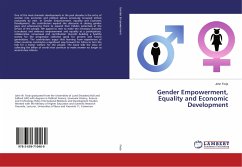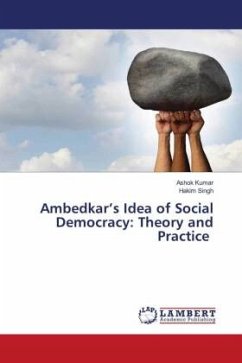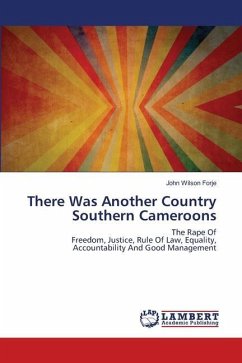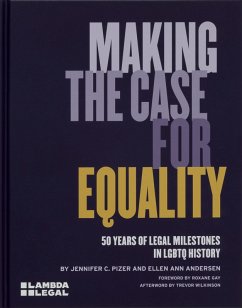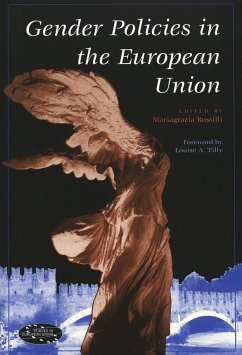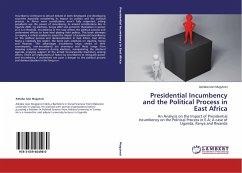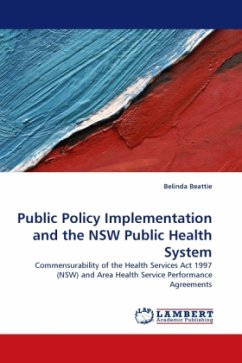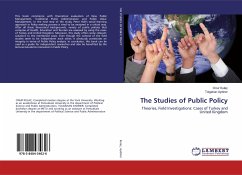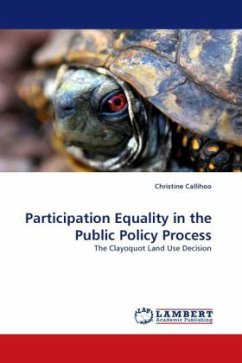
Participation Equality in the Public Policy Process
The Clayoquot Land Use Decision
Versandkostenfrei!
Versandfertig in 6-10 Tagen
52,99 €
inkl. MwSt.

PAYBACK Punkte
26 °P sammeln!
The general public perception within the Canadian public policy process is that of objective analysis and development to most accurately reflect the general values and desires of the Canadian public. However, research shows that the desire for balance and equality is not the prevailing modus operandi in the public policy process. In fact, the interests and parties most involved in the process are generally well financed and politically supported to ensure specific outcomes prior to the initiation of the public policy process. The case study, focusing on the highly contentious Clayoquot Sound L...
The general public perception within the Canadian public policy process is that of objective analysis and development to most accurately reflect the general values and desires of the Canadian public. However, research shows that the desire for balance and equality is not the prevailing modus operandi in the public policy process. In fact, the interests and parties most involved in the process are generally well financed and politically supported to ensure specific outcomes prior to the initiation of the public policy process. The case study, focusing on the highly contentious Clayoquot Sound Land Use Decision of 1993, provides further evidence of the lack of equality throughout the public policy process and the ongoing requirement for all parties to secure and maintain essential resources (money, expertise, political influence, media interest, etc) in order to influence the policy outcome. Without equality, Canada's public policy process will generally reflect the values and desires of the dominating interests able to leverage and secure required resources, and ultimately desired public policy outcome.



